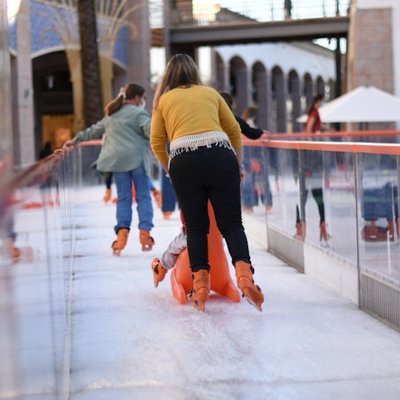- Dictionary
spectacles(
spehk
-
tuh
-
kuhlz
)A plural noun indicates that there is more than one person, place, thing, or idea.
1. (optics)
b. los anteojos (M) (Latin America)
(m) means that a noun is masculine. Spanish nouns have a gender, which is either feminine (like la mujer or la luna) or masculine (like el hombre or el sol).
Regionalism used in Latin America: all the countries in South America, Central America, and the Caribbean. Does not include Spain.
Chris needs to wear spectacles in order to read.Chris debe usar anteojos para poder leer.
c. los lentes (M), las lentes (F) (Latin America)
(m) means that a noun is masculine. Spanish nouns have a gender, which is either feminine (like la mujer or la luna) or masculine (like el hombre or el sol).
(f) means that a noun is feminine. Spanish nouns have a gender, which is either feminine (like la mujer or la luna) or masculine (like el hombre or el sol).
Regionalism used in Latin America: all the countries in South America, Central America, and the Caribbean. Does not include Spain.
Estefania has used spectacles since she was a baby due to her farsightedness.Estefanía ha usado lentes desde que era bebé debido a su hipermetropía.
spectacle
A noun is a word referring to a person, animal, place, thing, feeling, or idea (e.g., man, dog, house).
a. el espectáculo (M)
(m) means that a noun is masculine. Spanish nouns have a gender, which is either feminine (like la mujer or la luna) or masculine (like el hombre or el sol).
Last night's lightning storm was a beautiful spectacle.La tormenta eléctrica de anoche fue un espectáculo hermoso.
a. el espectáculo (M)
(m) means that a noun is masculine. Spanish nouns have a gender, which is either feminine (like la mujer or la luna) or masculine (like el hombre or el sol).
There's going to be a wild spectacle of drumming and dancing at the university theater this Thursday.Un espectáculo desenfrenado de tambores y baile tendrá lugar en el teatro universitario este jueves.
a. el espectáculo (M)
(m) means that a noun is masculine. Spanish nouns have a gender, which is either feminine (like la mujer or la luna) or masculine (like el hombre or el sol).
I hope our team will spare us the sad spectacle of a new defeat at home.Espero que nuestro equipo nos evite el triste espectáculo de una nueva derrota como locales.
b. no direct translation
This refers to an idiomatic word or phrase for which there is no word-for-word translation.
Marcia made a spectacle of herself wearing that white dress at Lili's wedding.Marcia hizo el ridículo poniéndose ese vestido blanco en la boda de Lili.
Stop drinking - you're making a spectacle of yourself!Ya deja de beber - ¡estás haciendo el ridículo!
Examples
Machine Translators
Translate spectacles using machine translators
Other Dictionaries
Explore the meaning of spectacles in our family of products.
Random Word
Roll the dice and learn a new word now!
Want to Learn Spanish?
Spanish learning for everyone. For free.























